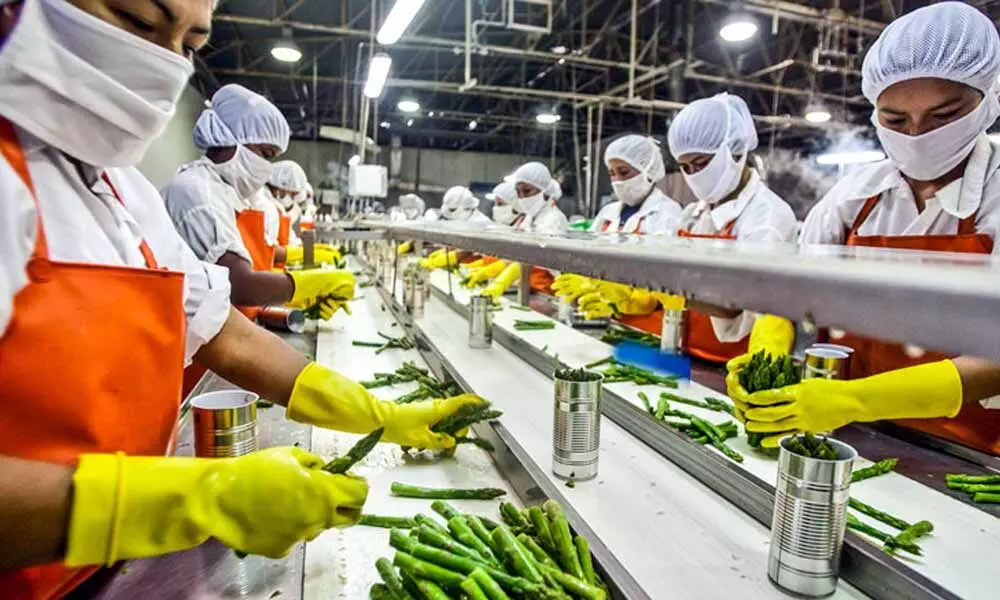Cut GST on food processing industry: Assocham
Around 74% countries have nil GST/VAT rate on food and 92% countries have maximum GST/VAT rate on food is 10% or less
image for illustrative purpose

New Delhi: The government should reduce the GST rates applicable on the food processing industry and also rationalise the rates applicable between packaged branded and non-branded food products in the segment, industry body ASSOCHAM has demanded.
Presently branded and packaged foods products such as potato chips, cereals, snack foods, namkeen falls under 12 per cent slab, while unbranded namkeens, chips and bhujia fall under a five per cent duty structure. The food processing industry, which has a current aggregate output of around 158.69 billion is one of the most important sectors in India and is struggling hard to operate considering the stressed economic situation, uncertainties of input supplies after the Covid -19 pandemic, said ASSOCHAM.
The industry has linkage to agriculture and food consumption and its performance has a socio-economic impact, is also facing price inflation, said a letter by industry body ASSOCHAM addressed to the Minister for Food Processing Industries Pashupati Kumar Paras. "In such testing times, it is crucial for the government to provide the requisite support to the industry by introducing GST rate rationalisation measures in line with the requests being made by the industry in the past and established global practices," said the letter by ASSOCHAM Secretary-General.
According to the industry body, it understands that the government is currently working on GST rate rationalisation for merging two GST rate tariffs to streamline the GST rate structure. Citing the global practices, it said most of the countries accord a preferential treatment for taxation on food. "Around 74 per cent countries have nil GST/VAT rate on food and in 92 per cent countries the maximum GST/VAT rate on food is 10 per cent or less," it said, adding in most of the developing countries, food products are kept at lower tax rates/ exempted to ensure that the products are affordable for the public at large.

